Filter by
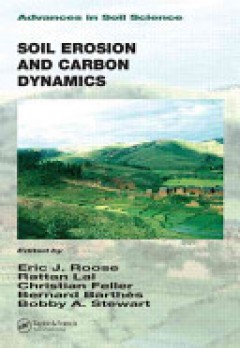
Soil erosion and carbon dynamics
The most complete, nonpartisan source of information on this hot agronomic topic available today, this book brings together a diverse group of papers and data to resolve the debate between sedimentologists and soil scientists and agronomists over whether the effects of soil erosion on carbon and atmospheric CO2 is beneficial or destructive. Divided into four sections, it offers data on how soil…
- Edition
- 22
- ISBN/ISSN
- 9781566706889
- Collation
- -
- Series Title
- -
- Call Number
- 631.45 ROO s
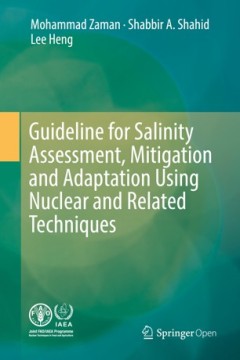
Guideline for salinity assessment, mitigation and adaptation using nuclear an…
This open access book is an outcome of the collaboration between the Soil and Water Management & Crop Nutrition Section, Joint FAO/IAEA Division of Nuclear Techniques in Food and Agriculture, Department of Nuclear Sciences and Applications, International Atomic Energy Agency (IAEA), Vienna, Austria, and the International Center for Biosaline Agriculture (ICBA), Dubai, UAE. The objective of this…
- Edition
- -
- ISBN/ISSN
- 9783319961903
- Collation
- xxvi, 164p. : ill.
- Series Title
- -
- Call Number
- 631.4 ZAM g
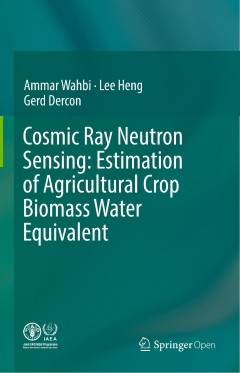
Cosmic ray neutron sensing : estimation of agricultural crop biomass water eq…
This open access book provides methods for the estimation of Biomass Water Equivalent (BEW), an essential step for improving the accuracy of area-wide soil moisture by cosmic-ray neutron sensors (CRNS). Three techniques are explained in detail: (i) traditional in-situ destructive sampling, (ii) satellite based remote sensing of plant surfaces, and (iii) biomass estimation via the use of the C…
- Edition
- -
- ISBN/ISSN
- 9783319695396
- Collation
- x, 33p. : ill.
- Series Title
- -
- Call Number
- 631.432 WAH c
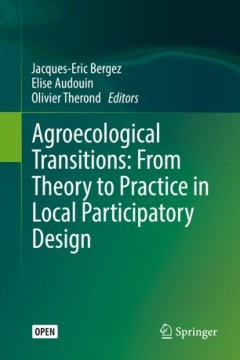
Agroecological transitions : from theory to practice in local participatory d…
There is wide agreement on the need to change the prevalent agricultural models, given their negative impacts and their incompatibility with current societal issues. Agroecological transition has been promoted as a potential solution to the ecological, social and economic problems generated by these models. It however involves a systemic, multi-scale and transdisciplinary process. Due to thi…
- Edition
- -
- ISBN/ISSN
- 9783030019532
- Collation
- xvi, 335p. : ill.
- Series Title
- -
- Call Number
- 577.55 AGR a
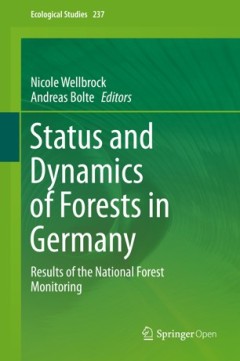
Status and dynamics of forests in Germany : results of the National Forest Mo…
Forest ecosystems in Central Europe are changing as a result of anthropogenic influences and changing climate conditions. As such, a large-scale monitoring programme was undertaken in order to understand the influence of site modification, deposition of air pollutants, and climate. This book presents the scientific findings of this study for Germany, including the major challenges with regar…
- Edition
- -
- ISBN/ISSN
- 9783030157340
- Collation
- x, 384p. : ill.
- Series Title
- -
- Call Number
- 634.90943 STA s
 Computer Science, Information & General Works
Computer Science, Information & General Works  Philosophy & Psychology
Philosophy & Psychology  Religion
Religion  Social Sciences
Social Sciences  Language
Language  Pure Science
Pure Science  Applied Sciences
Applied Sciences  Art & Recreation
Art & Recreation  Literature
Literature  History & Geography
History & Geography